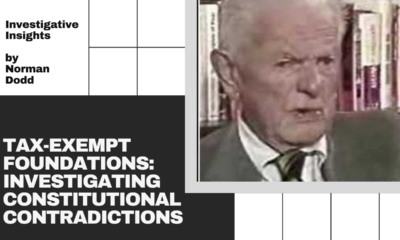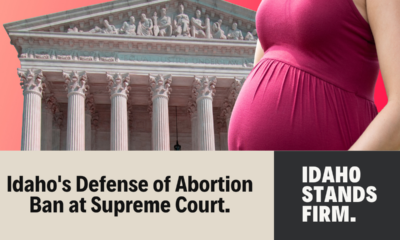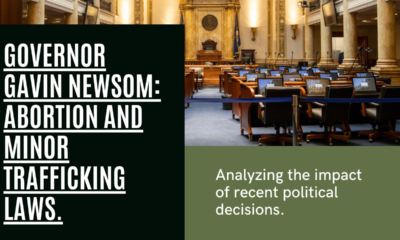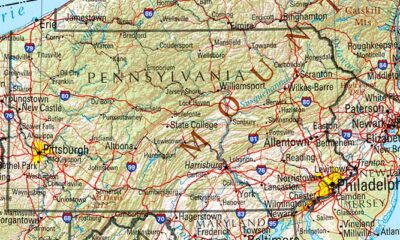Entertainment Today
Soap opera in real life?
The soap opera form was always addictive – but one show seemed almost to spawn two real-life imitators: Watergate and the WEF.
The news, other than of the Trump Raid, has gotten slow lately. The top twenty items on the leading trend engine mostly concern athletes, sport contests, and actors. These include the deaths of two daytime soap opera stars (Anne Heche and Robyn Griggs) and one primetime soap opera actress and director (Denise Dowse). All this reminds CNAV of two key facts about the soap opera form. For the many years it has existed, it has proved highly addictive. The reason for that escapes even those who actually still watch it: it is an uncanny imitator of life. And sometimes someone produces a show that strikes very close to real life, with much higher stakes than usual. Then when the headlines read close to the plot, people start to wonder how corrupt our institutions really are.
The soap opera form and typical characters and situations
Soap opera gets its name from its chief industry sponsor: companies that make soap. In fact, the most serious of these companies actually form their own production offices. They not only sponsor the show; they produce it. The most famous of these companies is, of course, Procter and Gamble.
Typical soap operas began in the Fifties and Sixties with doctors, lawyers, and their families as primary characters. So naturally plots centered around the challenges such people face in their work. Someone has fallen ill with a rare disease, or needs a risky operation. (In fact possibly the most common hazard of life in the fictional communities where these shows take place is motor-vehicle trauma, with airplane crash-on-landing running a close second.) Or one particularly vile character dies from murder, and the police arrest the wrong person. The case will go to trial, and that trial will drag out very long—until a surprise witness appears, or someone confesses to the murder on his/her deathbed, or the defense counselor, in Perry Mason fashion, extracts a confession after catching the real murderer in inconsistencies or outright lies in court.
But soap opera relies on more than high medical and legal drama to draw in viewers. It relies on gossip. Much of that gossip probably couldn’t embarrass someone nearly as much today as it could fifty or sixty years ago. Which could be one reason soap opera seems to be dying as a dramatic form today.
The soap opera that anticipated life – twice
But one soap opera in particular broke the mold—and anticipated not just one real-life drama, but two. One drama happened while the show was running, back in the Seventies. The other drama is happening today. And it raises the question of which sort of drama would people rather be living through: the fictional drama that seemed outlandish when it first appeared, or the real-life dramas that played out, or are playing out, almost to imitate it.
Love is a Many Splendored Thing, the TV series, ran from 1967 to 1973. It took place entirely in San Francisco, and began as a sequel to the William Holden and Jennifer Jones movie. The original lead was a Korean immigrant who married into a white San Francisco family. But the writers grew tired of drama from interracial romance and family life, and moved to the immigrant’s illegitimate son. We see him marry a nun, then stand trial for a murder. His lawyer gets him off by extracting a Perry Mason-style confession from the other woman in the dead man’s life.
But then the story arc takes the break-the-mold turn. The lawyer, fresh from his legal triumph, decides to run for the California Senate.
Do you recognize this plot?
His reason for running for the Senate concerns yet another character. Call him Big Shot. Big Shot is always looking for cheap land and other government favors. (We never learn the industry he is in.) He has gotten a variety of literal “privileges” (private laws) through the State Congress that make our Lawyer friend sick. And he knows how Big Shot did it: he bought a Senator (call him Incumbent). So Lawyer decides to “primary” the Incumbent.
Big Shot doesn’t like that. So he tells Incumbent that he has a sort of Slave at his beck and call, someone he can threaten with arrest if he does not obey. Incumbent tasks Slave to “bug” Lawyer’s apartment, in the belief that Lawyer will meet a Party Bigwig there. (Lawyer, of course, seeks Bigwig’s endorsement, which will take the Party Line away from the Incumbent.) Slave insinuates himself into Lawyer’s campaign, so he can get into Lawyer’s apartment to plant the bug. Then he sets up his receiver, tape recorder, and voice-activation system—and then leaves. He doesn’t want to be around to listen to the conversation he has orders to record.
But Lawyer and Bigwig don’t meet in the apartment. Instead, Mrs. Lawyer receives a friend of hers – a female medical student who also is Slave’s girlfriend and whose brother is a doctor and a good friend of Lawyer. And Mrs. Lawyer tells Girl Med Student that she is carrying a child—and Lawyer isn’t the father!
The first real-life soap opera imitation: Watergate
That plot has some of the traditional soap opera elements, especially gossip. But now it throws in politics, and especially dirty politics. We cannot know how much longer that soap opera would have run. Why not? Because shortly after that plot started to unfold, the first real-life “imitator” played out. That “imitator” was Watergate.
Watergate must have shocked most of those who had “gotten into” Love is a Many Splendored Thing, the TV show. Except for the embarrassed-wife angle, you had many of the plot elements from that show. People broke into the offices of a major political party. They planted bugs and looked for and photographed documents. But the police caught them.
From the beginning that became a major scandal – because the Incumbent analog in this case was none other than the President of the United States. The only reason Richard M. Nixon won re-election that fall was that George S. McGovern ran one of the worst campaigns anyone could have run. The American people looked at McGovern and saw not only a servant of the Soviet Communist Empire, but one who would govern as a Communist if he won election. Americans chose the status quo over that kind of radical public policy experiment.
But after the election, Nixon couldn’t stop the investigation.
The real-life drama kills the show
More than that, the real-life drama killed the soap opera that anticipated it. Few people cared for the relatively tame TV drama – which in any case, came to a happy end. Not when another drama was playing out that revealed serious threats to people’s freedom.
Then, through the summer of 1973, the Senate Select Committee on Presidential Campaign Activities dealt the final blow. Bad enough that this “Watergate Committee” revealed lurid details that the showrunners and writers of the soap opera couldn’t imagine. But then all the networks, including CBS (where the show played), pre-empted all their soap operas and game shows to carry the Senate Watergate Committee live. Yes, some people complained. But many more actually preferred the real-life drama – and the comic relief! Who can forget Senator Samuel J. Ervin, D-S.C., shouting this to a hapless witness at the green table?
How did you expect to liberate Cuba by perpetrating a burglary in Washington, D.C.!?
Against all that, Love is a Many Splendored Thing couldn’t compete. So in 1973 its last episode played out. The real-life drama ended, as we all know, with the resignation of the President.
Today’s soap opera imitation
And today we see another imitation of that particular soap opera. This one focuses on a political party doing all the things the other political party in Watergate tried to do. (Tried because they obviously failed. Nixon resigned, and most of his team went to prison.)
But the second drama involves the player the first one forgot: Big Shot. Remember him? Land-development manipulator, who bought a State Senator and also owned a slave. Does anyone doubt for one second that such characters exist in real life?
In this drama, the champion of the people is not a lawyer, but someone who did make his money in real estate. And his career is so colorful that his enemies can make him look as bad as that fictional Big Shot. But what those enemies want you to forget, is that they themselves are another category of Big Shots. Or else they are the bought-and-paid-for politicians, or their slaves, willing or unwilling.
And who are these Big Shots? Well, the fictional Big Shot sought to expand his commercial and/or industrial empire, allegedly at the expense of the people. We don’t know what sort of living he provided to others, or what happened to his empire after his death. But imagine a cadre of Big Shots who want and get privileges – private laws – not only in America, but worldwide. Now imagine that they want to buy rulership of the entire planet – and kill everyone on it but themselves.
Which would you prefer?
So now, CNAV offers its readers a choice. Which would you prefer? The fictional drama now seems tame in comparison to either of the two real-life dramas that imitated it. And it even ends well. The good guys win, and manage to patch up their differences. The bad guys actually die, one after another.
In contrast…! Well, Watergate ended with a President resigned in disgrace, before he could do serious harm. But that paved the way for a successor who did very real public-policy harm. Fortunately, his successor managed to reverse that.
But now look at the modern imitator of that soap opera. You have a sizable cadre of Big Shots who have bought a large number of Members of Congress, Members of Parliament, and even Heads of State. These Big Shots even have a high-minded name: World Economic Forum. They have explicitly advocated population reduction – and might have carried it out.
And now their minions in America have enacted the hiring – and arming – of 87,000 new tax collectors. These same people have also turned law enforcement into a political weapon. And in Saul Alinsky fashion, they want you to believe that your champion is your enemy.
Happily, all three dramas had one thing in common. The way that, in the end, the Big Shots and the Crooked Incumbents got stopped, is, at least in part, with the People’s Vote. Remember that, less than three months from now.
Terry A. Hurlbut has been a student of politics, philosophy, and science for more than 35 years. He is a graduate of Yale College and has served as a physician-level laboratory administrator in a 250-bed community hospital. He also is a serious student of the Bible, is conversant in its two primary original languages, and has followed the creation-science movement closely since 1993.
-

 Executive5 days ago
Executive5 days agoThe Hunters Have Now Become The Hunted: Their Cruelties Are Swelling The Ranks Of The People Worldwide!
-

 Clergy4 days ago
Clergy4 days agoWhy Do The American People Let The Corrupt Media & Politicians Set The Propaganda Narrative – Speak On Their Behalf
-

 Constitution5 days ago
Constitution5 days agoCHAPTER 9: Norman Dodd Interview Space Is No Longer the Final Frontier––Reality Is [upcoming release April 2024]
-

 Entertainment Today4 days ago
Entertainment Today4 days agoCivil War (2024) – an incomplete prediction
-
![CHAPTER 10: Objective Reality Is Required for a Free Society Space Is No Longer the Final Frontier—Reality Is [upcoming release May 2024]](https://cnav.news/wp-content/uploads/2024/04/Objective-reality-v-acceptance-400x240.png)
![CHAPTER 10: Objective Reality Is Required for a Free Society Space Is No Longer the Final Frontier—Reality Is [upcoming release May 2024]](https://cnav.news/wp-content/uploads/2024/04/Objective-reality-v-acceptance-80x80.png) Education4 days ago
Education4 days agoCHAPTER 10: Objective Reality Is Required for a Free Society Space Is No Longer the Final Frontier—Reality Is [upcoming release May 2024]
-

 Human Interest3 days ago
Human Interest3 days agoIdaho prepares to defend its abortion ban
-

 Civilization3 days ago
Civilization3 days agoEarth Day Should Celebrate U.S. Progress & Innovation
-

 Civilization1 day ago
Civilization1 day agoNewsom plays silly abortion politics












